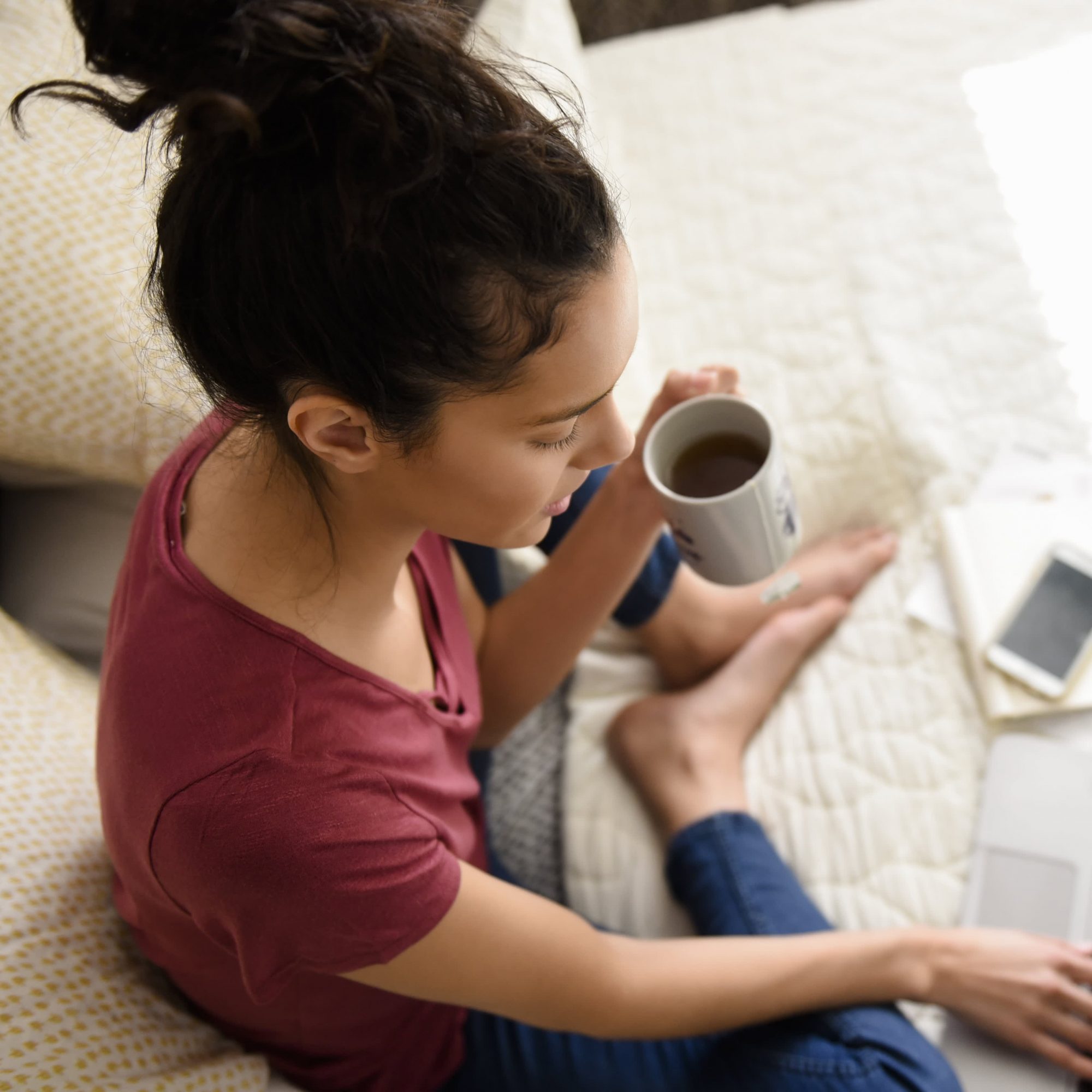
- POPSUGAR Australia
- Fitness
- The Most Effective Times to Drink Coffee, According to a Dietitian
The Most Effective Times to Drink Coffee, According to a Dietitian

I never know how I am going to feel after a cup of coffee – I’m either energized, I’m anxious, or I experience nothing at all.
Does that stop me from relying on cold brews to get through each day? No. But it does have me thinking there may be a science behind the best times to consume coffee. Kristina Comer, a registered dietitian with UCHealth, confirmed my theory holds weight.
Comer suggested having your morning coffee within three hours after waking up and enjoying an afternoon cup at least six hours before bed. If you’re looking for a pre-workout boost, sip on a brew about 30 to 60 minutes before you start your session.
Related: Does Coffee Make You Anxious? Try These Caffeinated Drinks Instead
Consuming caffeine during periods when your body produces lower amounts of cortisol (which is a stress hormone) can help boost energy levels and focus, Comer told us. Since our cortisol levels (which are produced in sync with our circadian rhythm) are highest in the morning after waking up and drop after about three hours, a coffee later in the morning may be more beneficial.
People often experience a spike in cortisol after meals, followed by a drop – that’s when you’re hit by the classic workday slump, she said. This is when your afternoon cup will come in handy. Comer said spacing out the caffeine content this way helps prevent overlap and overload of caffeine, which can lead to the jitters – but it’s not a foolproof method for feeling good. Understanding your caffeine sensitivities is a key part of discovering your perfect regimen.
Related: The 1 Thing I Gave Up in My Diet to Finally Ease My Anxiety Symptoms
“It’s important to note that specific genes can make certain individuals more sensitive to caffeine than others,” Comer said. The half-life of caffeine (the amount of time it takes for the body to eliminate one-half of the caffeine you’ve consumed) can also vary from person to person, anywhere from two to 12 hours.
Comer added that consuming coffee on an empty stomach can increase the rate of absorption (and up your chances of feeling anxious) vs. drinking coffee with a balanced meal that’s high in protein and fiber. Opting for a sugary brew can cause a sudden spike and crash in blood sugars, too, which may bring on jitters.
Don’t forget that soda, energy drinks, tea, and chocolate also contain caffeine – and consuming more than 400 mg of caffeine per day (in any form) may cause an upset stomach, nausea, an increased heartbeat, or heart palpitations.
Considering my days revolve around my trips to the Keurig, it may be challenging to reorganize my indulging schedule, but it seems well worth the small price.
Click here for more health and wellness stories, tips, and news.

